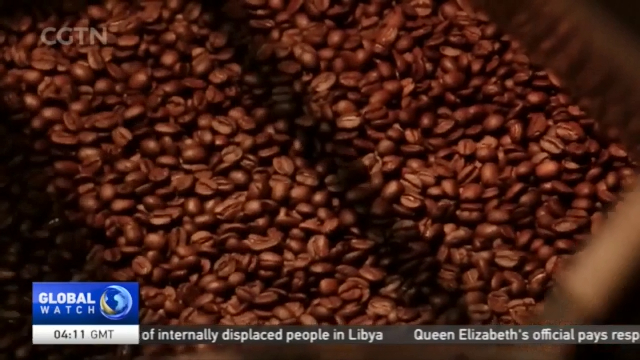
13:04, 11-Aug-2018
US Trade Tariffs: Coffee industry impacted; farmers still awaiting $12 bln in aid
Updated
12:45, 14-Aug-2018
01:58

Some American enterprises and farmers hit by the tariffs are under great pressure. They are worrying about a tremendous loss caused by the further escalation of trade frictions between the US and other countries. CGTN's Natalie Pang has more.
Washington State, the birthplace of Starbucks, exports coffee products worth 58 million US dollars to Canada annually. But uncertainties in the Canadian market caused by the ongoing trade frictions have been impacting sales.
EMANUELE BIZZARRI OWNER, CAFFE UMBRIA "In about a year, we're going to lose about 250-thousand dollars. It is worrisome."
These trade frictions have also impacted other commodities ranging from perfume and poker cards to motorboats. And the effects are sweeping across other US states such as Alaska, Louisiana and South Carolina. Many in the business community are worried about the government's next move.
BRIAN KELLY BUSINESS & ECONOMICS PROFESSOR, SEATTLE UNIVERSITY "I think that they're playing it by ear and they simply don't know where they want to end up. So right now, it's a lot of bravado. But it's harmful bravado with no escape hatch."
Life for farmers is not easy as well. Marc Arnusch, a farmer growing corn, wheat and barley in Colorado, is waiting for subsidies that President Donald Trump had promised. It is a 12-billion-dollar federal aid package that aims to help them survive the tariffs scuffle. However, he and other farmers believe the more vital thing is new trade deals with China, Mexico and Canada.
MARC ARNUSCH FARMER IN COLORADO "I know I speak for a lot of Colorado farmers when I say we'd rather earn our living through the marketplace than just another handout."
The US Chamber of Commerce recently estimated the tariffs would cause losses of 39 billion US dollars across the board. That means on top of the 12 billion aid package for farmers, another 27 billion dollars are still needed for other industries. And as the government acknowledged, the money will keep the wheels running for the short term. But it seems like it will not solve the issues at all.

SITEMAP
Copyright © 2018 CGTN. Beijing ICP prepared NO.16065310-3
Copyright © 2018 CGTN. Beijing ICP prepared NO.16065310-3